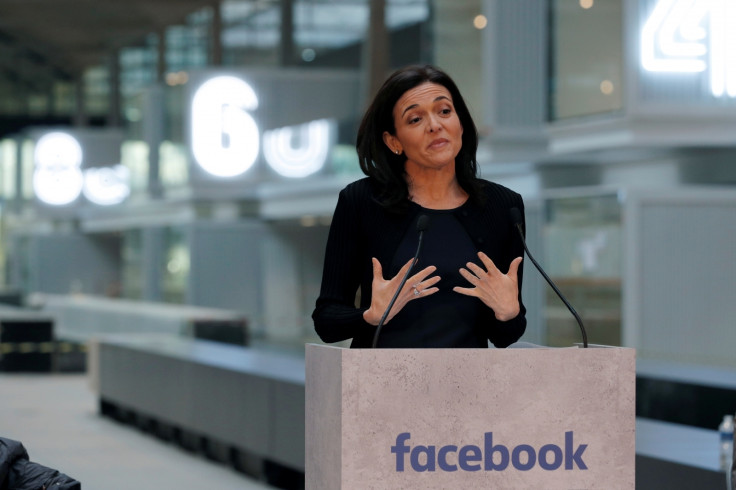Facebook's Sheryl Sandberg: Telling little girls not to lead at a young age is a mistake
"We need to start paying women well and we need the public and the corporate policy to get there," she said.

Facebook Chief Operation Officer Sheryl Sandberg on Sunday (30 July) urged governments and companies to do more to help close the gender pay gap and emphasized the importance of encouraging both young boys and girls to be leaders at an early age. In an interview with Kirsty Young on BBC Radio 4's Desert Island Discs, Sandberg said it is a mistake to tell little girls not to lead at a young age.
"We start telling little girls not to lead at a really young age and we start to tell boys [to] lead at a very young age. That is a mistake", the 47-year-old tech executive and author of the 2013 bestseller 'Lean In' said. "I believe everyone has inside them the ability to lead and we should let people choose that not based on their gender but on who they are and who they want to be."
During the interview, she also called for public and corporate policy changes to start paying women well.
"We need to start paying women well and we need the public and the corporate policy to get there," she said. "Certainly, women applying for jobs at the same rate as men, women running for office at the same rate as men, that has got to be part of the answer."
Her remarks come after BBC disclosed its own significant gender gap, particularly among its top-earning on-air talent. While the highest paid male BBC star earns over £2m ($2.6m) annually, the highest-paid female star earned between £450,000-500,000 a year.
Sandberg, who cited her mother and grandmother as her female role models growing up, chose Beyonce's Run The World (Girls) as her first song on the radio programme.
She also talked about Facebook's efforts to prevent its popular platform and messaging service WhatsApp from being used by terrorists and extremists for recruitment and communication purposes and to spread propaganda.
Discussing a recent meeting with British interior minister Amber Rudd, the executive said Facebook and the UK government are "very aligned in our goals."
"We want to make sure all of us do our part to stop terrorism, and so our Facebook policies are very clear: there's absolutely no place for terrorism, hate, calls for violence of any kind," Sandberg said. "Our goal is to not just pull it off Facebook but use artificial intelligence and technology to get it before it's even been uploaded."
She added that Facebook is working with other tech companies to create a database of unique digital fingerprints of terrorist and extremist content to help them identify, remove and prevent the spread of illegal content on their sites.
Following the Westminster terror attack in March, Rudd said law enforcement and intelligence agencies should be given access to encrypted platforms such as WhatsApp. However, Sandberg defended end-to-end encryption saying the message may be encrypted, but the metadata is not.
"The goal for governments is to get as much information as possible, and so when there are message services like WhatsApp that are encrypted the message itself is encrypted but the metadata is not", Sandberg said. "Meaning that when you send me a message we don't know what that message says but we know that you contacted me.
"If people move off those encrypted services and go to encrypted services in countries that won't share the metadata, the government actually has less information, not more. And so as technology evolves these are complicated conversations."
She said that as technology evolves, these "complicated conversations" will continue. and said the firm is in close communication with authorities on such issues.
© Copyright IBTimes 2025. All rights reserved.





















